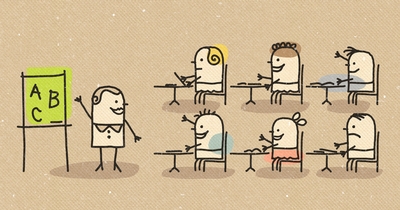Mom wasn’t right.
When we chose to double-major in English and philosophy, the parental unit had a fit. “Completely worthless! What will you do with that kind of education? Explain the jobs you’ll be able to apply for … (and so on).”
[And we went right ahead anyway.]
The latest in business thinking vindicates our choices. No less august an institution than the Carnegie Foundation issued a report on undergraduate business education, saying it was too narrow, it didn’t challenge students to question assumptions, to think creatively, and/or to understand the place of business in a larger context.
The solution: Major in philosophy. It teaches not what to think, but how to think, looking behind blind assumptions to question supposed answers. Philosophy also trains us to manage complexity and make solid decisions for the company as well as for society.
Way back when, we studied all manners of philosophers, from Plato to Heidegger (our main prof had a weakness for Martin). In class, we argued and fought, constructively, figuring out how to logically refute and look for options. Outside, we explored the whys of existence, the purpose of us, and our relationships to institutions and society. It was pretty heady stuff, somewhat forgotten when we became journalists.
Today, a number of consultancies have risen from philosophical underpinnings. Senior tech execs, Reid Hoffman of LinkedIn, for one, tout their beginnings in this discipline. Most important: When you share your worldview, you’re creating a connection with another individual or institution (a/k/a alignment).
Should we all become philosophers in pinstripes? 

